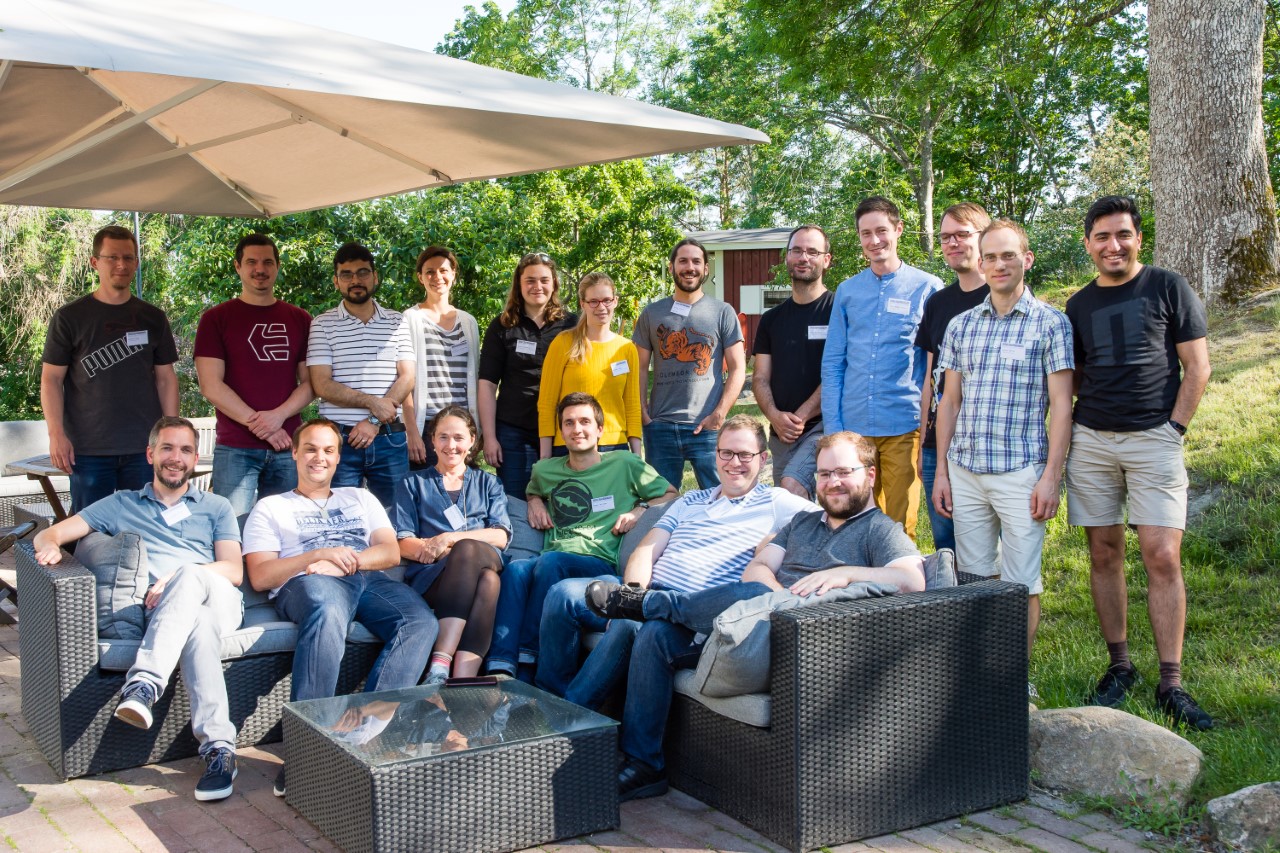
The TTK hackathon will take place the day prior to the TopoInVis workshop (Sunday, June 16, 2019). It will be organised by Dr. Julien Tierny, the lead researcher and developer of TTK library.
Tentative Program
| Program: June 16, 2019 (Sunday) | |
|---|---|
| 9:00-9:10 | General introduction |
| 9:10-9:40 | Introduction to topological methods for data analysis |
| 9:40-10:00 | Introduction to ParaView |
| 10:00-10:30 | Coffee Break |
| 10:30-11:00 | Overview of TTK’s features |
| 11:00-11:30 | General usage of TTK: ParaView, Python, VTK/C++, C++ |
| 11:30-12:00 | Step-by-step example: segmenting medical data with merge trees |
| 12:00-12:30 | Step-by-step example: extracting filament structures with the Morse-Smale complex |
| 12:30-14:00 | Lunch Break |
| 14:00-15:00 | Writing a module for TTK: a simple example |
| 15:00-18:00 | Work groups (Coffee will be served at 16:00) |
| 18:00-19:00 | Conclusion and group photo |
| 19:00-20:00 | Dinner |
Hackathon Topics
This TTK hackathon will cover the following topics.
- Analyzing data with TTK: If you have some interesting data sets that you would like to analyze with topological methods, we will show you how to explore your data with TTK.
- Integrating TTK in your own code: If you wish to integrate TTK in your own visualization or data analysis system, we will show you how to do this, thanks to TTK’s Python, VTK or pure C++ APIs.
- Getting started with TTK programming: If you want to experiment with all the cool features that TTK provides programming-wise (fast grid/triangulation traversal, automatic Python/ParaView/VTK integration, etc), we will show you how to implement a simple algorithm in TTK (for instance, data smoothing).
- Release your cool algorithm in TTK: If you are interested in distributing your own ideas through TTK, we will show you how to port your existing implementations to TTK.
- Bug hunting TTK: If you found a few bugs in TTK, please consider registering to the hackathon and we’ll track them down together!
- TTK as a research community tool: If you want to participate to TTK’s future as a software infrastructure for our research community, please consider registering to the hackathon to join vibrant discussions about the useful development directions the TTK development team should consider next.
We see this hackathon as an opportunity to grow as a community by federating our software engineering efforts, to make our research more accessible, reproducible and visible to others.
About TTK
The Topology ToolKit (TTK) is an open-source library and software collection for topological data analysis in scientific visualization. TTK can handle scalar data defined either on regular grids or triangulations, either in 2D or in 3D. It provides a substantial collection of generic, efficient and robust implementations of key algorithms in topological data analysis. It includes:
- For scalar data: critical points, integral lines, persistence diagrams, persistence curves, merge trees, contour trees, Morse-Smale complexes, topological simplification;
- For bivariate scalar data: fibers, fiber surfaces, continuous scatterplots, Jacobi sets, Reeb spaces;
- For uncertain scalar data: mandatory critical points;
- and more!
A few more TTK links:
- If you need to robustly analyze your acquired or simulated scientific data, you may want to use TTK, check out our gallery page to see visualizations we obtained with TTK.
- TTK makes topological data analysis accessible to end users thanks to easy-to-use plugins for the visualization front end ParaView. Thanks to ParaView, TTK supports a variety of input data formats. Check out the video tutorials to see TTK in action.
- TTK is written in C++ but comes with a variety of bindings (VTK/C++, Python) and standalone command-line programs. It is modular and easy to extend. We have specifically developed it such that you can easily write your own data analysis tools as TTK modules. Check out our developer documentation.
- TTK is open-source (BSD license). You can use it at your convenience, for open-source or proprietary projects. You are also welcome to contribute. Check out the contribution page.
- If you have questions, need support regarding the usage of TTK, or just want to provide feedback, the email address is topology.tool.kit@gmail.com
Registration
The registration fee for participating TTK hackathon is SEK 1500, please visit the registration page for details. You have the option of registering only for the hackathon or you can register along with TopoInVis workshop which will start a day later from June 17 to 19.
Contact
- Julien Tierny <julien.tierny at sorbonne-universite.fr>
- Jonas Lukasczyk <jl at jluk.de>